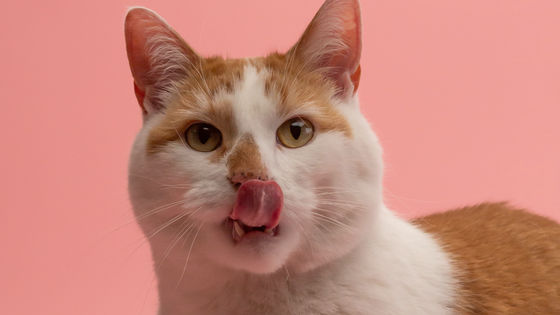The mystery of ``Why do cats born in the desert 10,000 years ago like tuna?'' Scientifically revealed

Cats are known to love fish, and there are a lot of cat food and treats for cats that use tuna in particular. Even people who have cats think that there are many people who feel that `` my cat seems to like tuna for some reason '', but researchers have scientifically clarified `` why cats like tuna '' .
Why do cats love tuna so much? Scientists may finally know | Science | AAAS

Cats have a unique sense of taste and are unable to taste sugar because they lack a key protein that allows them to sense it. About this, Scott McGran, a flavor scientist who works at the Waltham Institute Pet Nutrition Center, owned by pet food maker Mars Petcare , says, 'It's because the meat doesn't contain sugar.' In addition, cats have fewer bitter taste receptors in their taste buds than humans, which is also a common feature of supercarnivores.
However, as cats should be able to feel any of the five tastes, McGran and his team started researching cat taste buds. In humans and many other animals, two genes, ``Tas1r1'' and ``Tas1r3'', encode proteins that bind within the taste buds to form receptors that detect umami components. Previous studies have confirmed that cats express 'Tas1r3' in their taste buds, but it was unknown whether they have another important gene, 'Tas1r1'.
McGran and his team biopsied the tongue of a 6-year-old male cat that had been euthanized for health reasons unrelated to the study. As a result of analyzing the gene sequence of the tongue, it is clear that both 'Tas1r1' and 'Tas1r3' are expressed in the taste buds of cats. This is the first scientific proof that cat taste buds have all the molecular structures necessary to detect umami.

The research team also compared the protein sequences encoded by 'Tas1r1' and 'Tas1r3' in the feline taste buds with those encoded by 'Tas1r1' and 'Tas1r3' in the human tongue. They found that the human tongue receptor, which is responsible for binding to glutamate and aspartate, the key amino acids that activate umami taste, was mutated in cats. Therefore, Mr. McGran said, ``When I discovered this, I began to think that cats could not feel umami.''
Therefore, the research team designed cells to generate cat umami receptors on the cell surface. The cells were then exposed to various amino acids and nucleotides. Then, although the cells responded to umami, it seems that they showed a different reaction from human umami receptors. For human umami receptors, amino acids bind first and nucleotides amplify the response. However, the cat's umami receptor seems to have activated the receptor with nucleotides and amino acids further activated the receptor, ``This is the opposite reaction to that in humans,'' McGran explained.
In addition, the research team conducted a taste test on 25 cats. In the test, it seems that cats were given `` two bowls containing various combinations of amino acids and nucleotides '' or `` water ''. In taste tests, cats showed a strong preference for bowls containing molecules found in umami-rich foods, suggesting that cats prefer umami when eating.

Yasuka Toda, a molecular biologist at Meiji University who is known as a leading authority on the evolution of umami taste in mammals and birds, although she has no direct connection with this research, says, 'We are familiar with pet preferences. It's an important study that will help us understand it more deeply,' he said of the study. It could help pet food manufacturers develop healthier diets and palatable medicines for cats, he said.
Mr. Toda also commented, 'I think that umami is a very important factor for cats, just like sweetness is for humans.' He also points out that dogs can feel both sweetness and umami, so they may not be as fussy about eating as cats.
Umami isn't the only thing cats sense, according to research. In a taste test, cats particularly liked bowls containing histidine and

McGran cites ``the development of more palatable food for cats'' as one of the applications of this research. He also mentioned the possibility of developing a 'pharmaceutical that is easy for cats to take' that contains a large amount of umami ingredients.
However, cats are animals that evolved in the deserts of the Middle East about 10,000 years ago, and it is unlikely that tuna lived there, so the reason why cats prefer tuna? It's still a mystery.
There is a possibility that it is a taste that cats have cultivated over many years, but mural paintings drawn in ancient Egypt around 1500 BC already depict `` cats eating fish '', In the Middle Ages, it is clear that cats were eating large amounts of fish, including tuna, in some ports in the Middle East .
Therefore, Fiona Marshall, a zooarchaeologist at the University of Washington, points out that cats that have evolved to prefer the taste of tuna may have had an advantage in survival strategies over other cats.

However, McGran said, ``We are still at the starting point of research on cat taste.'' ``All this research is to deepen the basic understanding of what it means to be a cat.'' and called for further research.
Related Posts:







